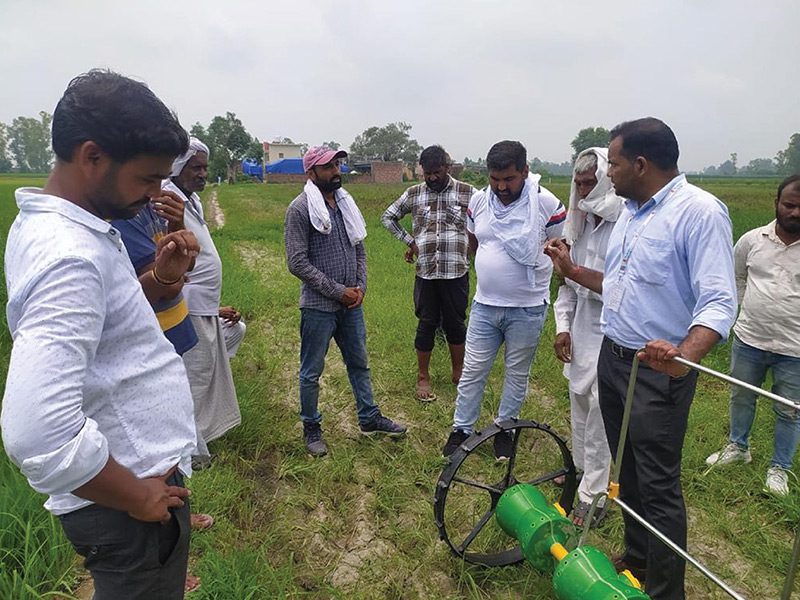Farmer’s Training on sustainable agriculture practices
Objectives
Target Beneficiaries
The beneficiaries of the program has been the local youth
Challenge
Inadequate access to resources, such as information, training, and financial support, hampers the adoption of these practices. There is also a lack of infrastructure to support the storage and marketing of sustainably grown produce. Moreover, water scarcity and soil degradation, prevalent in the region due to years of intensive farming, pose significant hurdles to achieving sustainable agricultural outcomes.
Strategy
To implement sustainable agricultural practices among farmers, a comprehensive strategy is devised. It begins with a baseline survey, the information helps tailor interventions. Next, ground-level engagement and extensive community sensitization campaigns are conducted to foster awareness about sustainable practices. A curated curriculum is developed, integrating key components of sustainable agriculture. Subsequently, a structured training program is implemented, ensuring efficient dissemination of knowledge and skills among farmers.
Journey
Outcome
Challenges & Solutions
To tackle the challenges of implementing sustainable agriculture practices in Kurukshetra, Haryana, a multifaceted approach was needed. First, extensive education and training programs were established to demonstrate the long-term benefits of sustainable practices and provide hands-on guidance to farmers.
Centum's Impact


Explore how we’re creating meaningful social impact through CSR projects in Employability linked Skill development and education, transforming communities and building brighter futures across India.
| Contact Us | Skills & Employability | Education |


